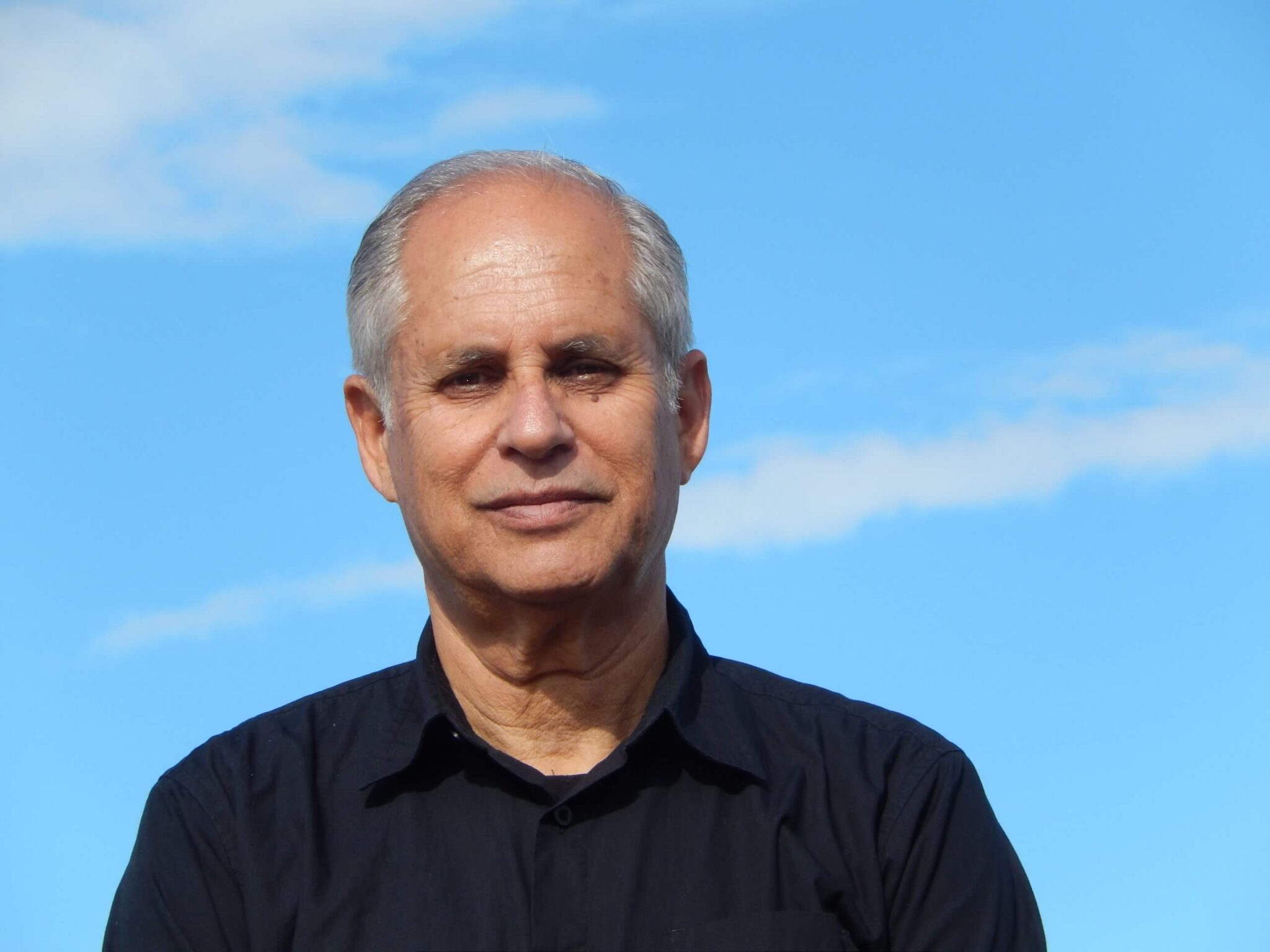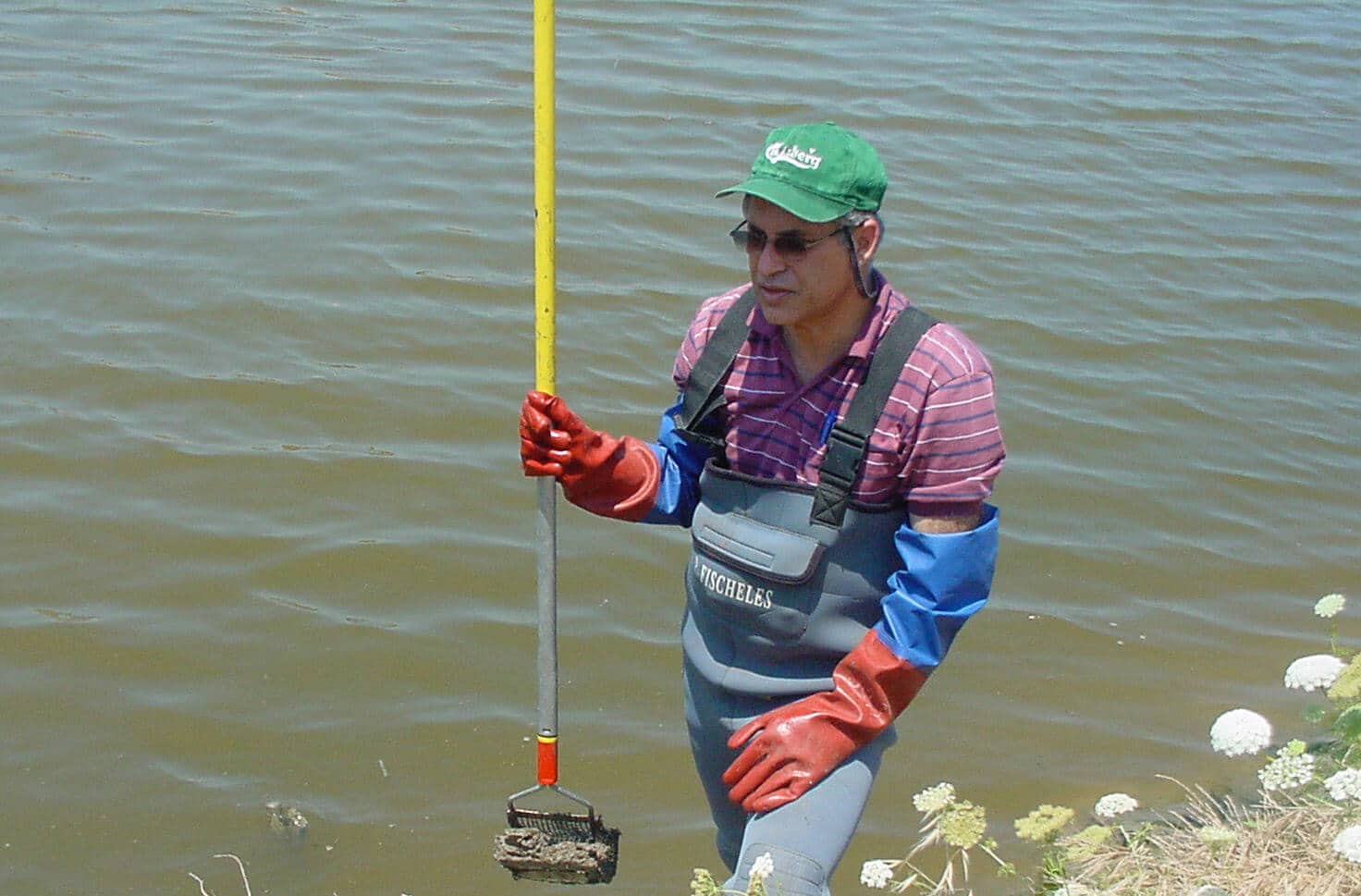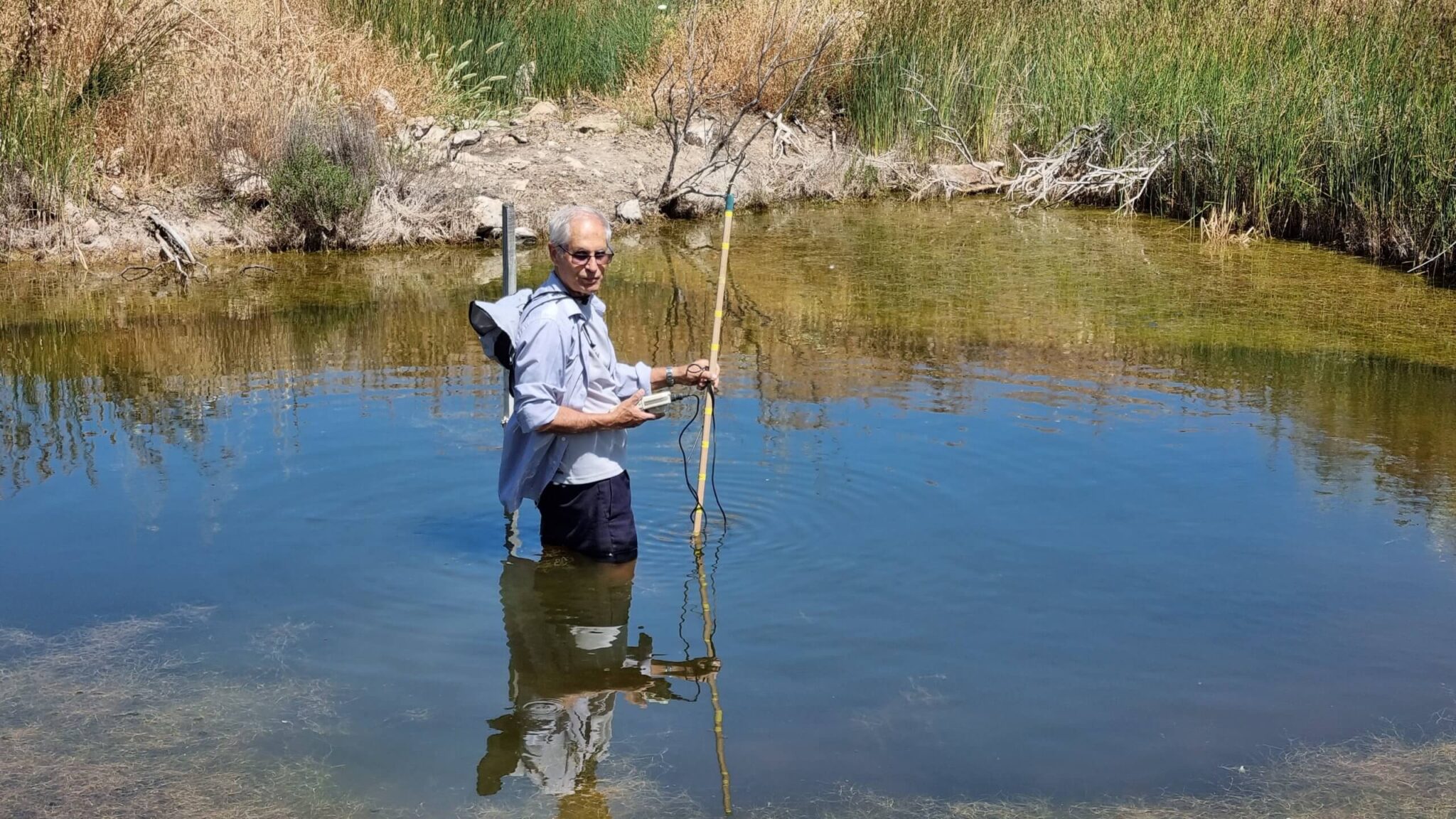A true environmental pioneer: Prof. Avital Gazit, a leading researcher in the field of freshwater bodies - is the recipient of the Israel Prize for Environmental Sciences and Sustainability, which is awarded this year for the first time. "I am not receiving the award for being a brilliant scientist, but for the contribution I had to preserving the environment - which my students will continue, and hopefully, their students as well"

Prof. Avital Gazit's romance with the natural world began in the yard of his parents' home in the Nes Ziona settlement, in a personal encounter of a boy with pigeons and domesticated chickens. When he was five years old, his family moved to greater Tel Aviv - but it was also there that Gazit found his way to nature, when he discovered the large puddle that was in those days in the center of Madinah Square. He collected tadpoles from her, brought them home - and watched patiently as they grew and turned into frogs.
The childhood and youth of the young nature lover probably foretold his future: in the decades that have passed since his first meeting with the Shubach and the Shoulit, Gazit has become one of the pioneers of research in the field of limnology: the study of fresh water bodies, such as the Kinneret, the streams, the springs and our winter pools. His research and public activity contributed greatly to the preservation of these beloved bodies of water.
In recognition of this activity, on the eve of Independence Day, Gazit (80), professor (emeritus) from the School of Zoology in the Faculty of Life Sciences and the School of Environmental and Earth Sciences in the Faculty of Exact Sciences of Tel Aviv University will receive the Israel Prize in the field of environmental and sustainability research, which is awarded this year for the first time.
Synonymous with Littoral
Since that initial encounter with the puddle in the State Square, Gazit has become For a successful researcher in the water fields. After studying a bachelor's and master's degree in biology at Tel Aviv University, he went on to a doctorate and a postdoctorate in the United States. Here in Israel, the Kinneret, the streams of the land and our winter pools - are the three subjects of his research, and in each of them he has brought about a small revolution.
In Kinneret, Gazit studied the shallow water area near the shore, called "littoral". "The explanation at the time was that the littoral was just a 'desert' of stones, but my students and I discovered, for example, that the Lebanese fish - the most common fish in the Kinneret - lay their eggs there on stones 15 centimeters deep, and that the tilapias dig pits to spawn in sandy areas among the vegetation in this area of Bima" , He says. In other words, Gazit and his students discovered that the marine "desert" does not speak at all. "I became synonymous with littoral in Israel," he laughs.
The discoveries of Gazit and his students in the littoral area led to a real change: for example, they prevented the removal of the stones on which the fish lay their eggs on certain beaches, and the cutting of the vegetation that developed around the Sea of Galilee as a result of a succession of dry years. According to him, all of these are of crucial importance in preserving nature, as well as in protecting the water security of the residents of Israel. "Taking care of the health of the ecosystem in the Sea of Galilee is what preserves its water quality," he says.
The importance of a flood
Gazit came all the way to California with his great love for nature: he chose to spend his sabbatical year at the University of Berkeley, doing research that examined the restoration of streams in the area. There he realized that the streams in Israel and those in California - which share similar climatic conditions - have a lot in common.
"We created a new understanding of 'Mediterranean streams', whose main characteristic is that floods are essential for their ecosystem; These streams have two distinctly contrasting seasons: a winter period that is rich in water and a summer period that lacks it," he explains. "Then, when winter begins - the floods clean the stream, and give it a 'reboot': they release silt (particles of soil that accumulate in a body of water and may damage the proper functioning of the ecosystem in it, yish) and sweep away animals that are not adapted to it - in a way that causes Most of them find refuge in quieter areas of the stream, and then renew their population in the spring, after the rains."

Despite the importance of these floods to the health of the streams - according to him, often those who plan the restoration of the streams do not recognize their advantages, perceive this phenomenon as only negative and only want to stop it with the help of different methods. "The right thing to do is not to stop a flood, but to channel it: to allow the excess water to find other channels; If we are hit by floods - we will kill the streams, which will be choked with silt", he explains.
Another subject in which Gazit dealt a lot is the prevention of river pollution, for which he still holds lectures and promotes applications to various bodies. According to him, although a long and beautiful way has been made since the time when sewage was flowed into the streams without interruption - Israel still has not solved the problem. "In the 60s and 70s, the stream was treated as a place into which sewage and pollution are poured as a way to remove them; The approach then was 'The solution to pollution is dilution', and to that I used to add that it was an illusion," he says. "It is true that today such an approach would be unthinkable, but even nowadays the pollution continues, mainly due to malfunctions in the operation of wastewater treatment facilities, which do indeed do an important job - but as a result of those malfunctions, they also flow an excessive amount of wastewater into the streams." According to Gazit, there is still a lot of work ahead of us on this issue. "You have to understand that the fight against stream pollution is not one-off, but ongoing and will continue for many years."
Everyone wants a winter pool
Another area where Gazit brought about change on a large scale is one that is particularly close to his heart: The winter pools. These are unique bodies of water that exist all year round, but look completely different in the different seasons: during the summer the pools are dry and the activity in them is limited to terrestrial life and vegetation only, and during the winter the pools are filled with water and are bustling with life with a variety of animal and plant species, some of which are unique to this habitat. "I am connected to the winter pools, also emotionally - because engaging in them closes the circle that opened when I was a child collecting tadpoles from a puddle," says Gazit.

Like many of the good things, also about the restoration and preservation of the winter pools in Israel - Gazit had to struggle. "When I returned to Israel from the USA, I got to know this blooming treasure in depth - in which there is a tremendous wealth of species," he says. "However, there were those who claimed that winter pools are a source of danger and mosquitoes, and when I fought for their existence they wanted to throw me down all the stairs. I talked about it with everyone I could try and convince - with heads of authorities, with the Ministry of Environmental Protection - and I did everything to preserve these spaces."
One of the first struggles that Gazit focused on was the preservation of the "Dora" winter pool in Netanya, which was planned to become a pool that is filled with water all year round, in a way that destroys the essential conditions for the life that exists there. "I introduced the animals in the pool and explained why this is a program that will destroy the unique conditions they need. That's how we stopped the plan," he says.
According to Gazit, awareness of the winter pools rose slowly, and today these spaces are a kind of brand and a symbol of urban excellence. "Today, almost all heads of local authorities want to build such pools and are asking for help; Dozens of winter pools that I was a part of establishing are already standing in the field - and this is the result of a continuous effort spread over 40 years."
The environmental award
Gazit's continuous effort and great investment in the Israeli environment and nature are part of the reasoning of the judges in the committee that decided to award the senior researcher the Israel Prize. According to Gazit, the choice to add a category of environment and sustainability to the old prize - indicates a significant change in perception. "We may have come to the understanding that the environmental plight can no longer be ignored," he explains. "In my opinion, the change in this issue came with the increase in awareness of the climate crisis, which led to the understanding that recognition and appreciation should be given to the people who are engaged in the fight against it."
When asked why, in his opinion, he receives the award - Gazit answers: "I don't think I receive the award for being a brilliant scientist. In my opinion, the award is given to me for the contribution I had to preserving the environment: I created a research and knowledge infrastructure on the basis of which the policy towards the water bodies in Israel was designed, and which my students will continue - and hopefully, their students too."
More of the topic in Hayadan:
- Israel Award to Prof. Avital Gazit from the School of Zoology at Tel Aviv University
- The animals in Israel that will benefit from climate change
- Construction and drainage activities reduced the area of water lines in Israel by 90%
- Research: Where did the winter pools and swamps on the coastal plain go?
